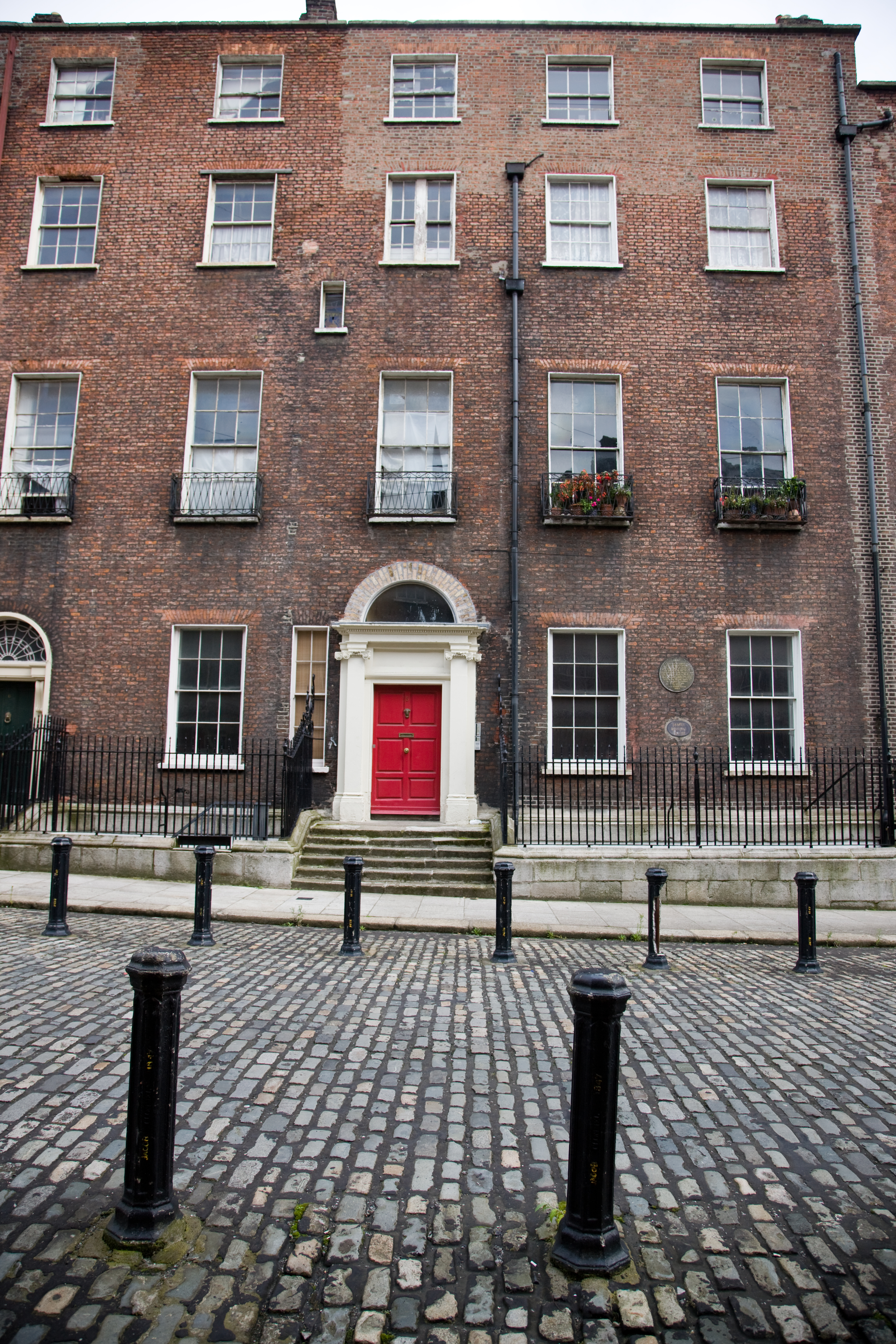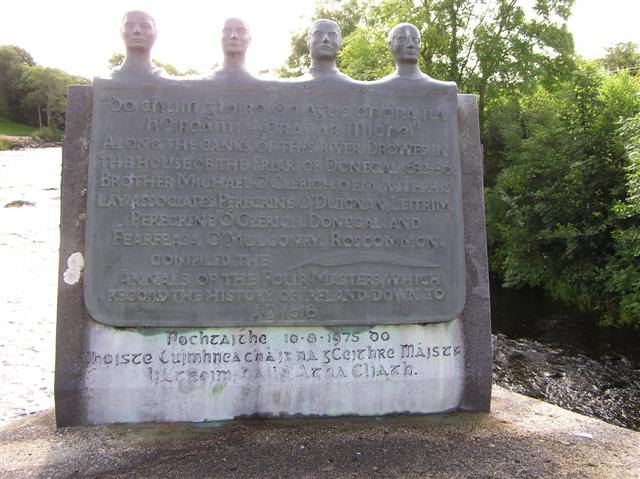|
Concubhair Mac Bruideadha
Concubhair Mac Bruideadha (fl. 1636) was an Irish poet and a man of letters. A son of Maoilin Óg Mac Bruideadha (died 1602); both of their names occur frequently in the Inchiquin manuscripts, and were closely connected to the Earls of Thomond and their family. Concubhair’s reputation as a man of letters was acknowledged in 1636, when his approbation and signature were sought by Brother Mícheál Ó Cléirigh for the Annals of the Four Masters. His signature reads: ''Mac Bruaideadha .i. Concobhar, mac Maoilin óicc, á Chill Caoidhe 7 ó Leitir Mhaoláin.'' See also * Seán Buí Mac Bruideadha, Irish poet, fl. 14th century. * Diarmuid Mac Bruideadha, died 1563. * Maoilin Mac Bruideadha, brother of the above, died 1582. * Maoilin Óg Mac Bruideadha, son of the above, died 1602. * Tadhg mac Dáire Mac Bruaideadha Tadhg mac Dáire Mac Bruaideadha) (1570–1652) was an Irish Irish may refer to: Common meanings * Someone or something of, from, or related to: ** Ireland, a ... [...More Info...] [...Related Items...] OR: [Wikipedia] [Google] [Baidu] |
Irish People
The Irish ( ga, Muintir na hÉireann or ''Na hÉireannaigh'') are an ethnic group and nation native to the island of Ireland, who share a common history and culture. There have been humans in Ireland for about 33,000 years, and it has been continually inhabited for more than 10,000 years (see Prehistoric Ireland). For most of Ireland's recorded history, the Irish have been primarily a Gaelic people (see Gaelic Ireland). From the 9th century, small numbers of Vikings settled in Ireland, becoming the Norse-Gaels. Anglo-Normans also conquered parts of Ireland in the 12th century, while England's 16th/17th century conquest and colonisation of Ireland brought many English and Lowland Scots to parts of the island, especially the north. Today, Ireland is made up of the Republic of Ireland (officially called Ireland) and Northern Ireland (a part of the United Kingdom). The people of Northern Ireland hold various national identities including British, Irish, Northern Irish or som ... [...More Info...] [...Related Items...] OR: [Wikipedia] [Google] [Baidu] |
Earls Of Thomond
Earl of Thomond was an hereditary title in the Peerage of Ireland. It was created twice for the O'Brien dynasty which is an ancient Irish sept native to north Munster. History and background First creation Under the Crown of Ireland Act 1542, King Henry VIII of England was created King of Ireland by the Parliament of Ireland. In consequence, all reigning monarchs and clan chiefs in Ireland were ordered to surrender their native titles in return for peerages. This surrender and regrant offer was conditional upon the adoption of Tudor customs and laws, including pledging allegiance to the Irish Crown and apostatising from the Catholic faith by accepting the articles of the state established Church of Ireland. Through surrender and regrant, the earldom of Thomond was created in 1543 for Murrough O'Brien. He had previously been styled King of Thomond and was descended from the ' or High King of Ireland, Brian Boru. O'Brien was also created Baron Inchiquin, on 1 July 1543. On the ... [...More Info...] [...Related Items...] OR: [Wikipedia] [Google] [Baidu] |
Mícheál Ó Cléirigh
Mícheál Ó Cléirigh (), sometimes known as Michael O'Clery, was an Irish chronicler, scribe and antiquary and chief author of the ''Annals of the Four Masters,'' assisted by Cú Choigcríche Ó Cléirigh, Fearfeasa Ó Maol Chonaire, and Peregrinus Ó Duibhgeannain. He was a member of the O'Cleric Bardic family and compiled with others the ''Annála Ríoghachta Éireann'' (Annals of the Kingdom of Ireland) at Bundrowse in County Leitrim on 10 August 1636. He also wrote the Martyrology of Donegal in the 17th Century. Background and early life Grandson of Tuathal Ó Cléirigh, a chief of the sept of Uí Chléirigh in Donegal, he was born in Kilbarron near Creevy, between Rossnowlagh and Ballyshannon on Donegal Bay. He was baptised Tadhg Ó Cléirigh and was known by the nickname Tadhg an tSléibhe (meaning Tadhg of the mountain), but took the name of Mícheál when he became a Franciscan friar. He was the youngest of four sons of Donnchadh Ó Cléirigh and his mother was Onór ... [...More Info...] [...Related Items...] OR: [Wikipedia] [Google] [Baidu] |
Annals Of The Four Masters
The ''Annals of the Kingdom of Ireland'' ( ga, Annála Ríoghachta Éireann) or the ''Annals of the Four Masters'' (''Annála na gCeithre Máistrí'') are chronicles of medieval Irish history. The entries span from the Deluge, dated as 2,242 years after creation to AD 1616. Publication delay Due to the criticisms by 17th century Irish historian Tuileagna Ó Maol Chonaire, the text was not published in the lifetimes of any of the participants. Text The annals are mainly a compilation of earlier annals, although there is some original work. They were compiled between 1632 and 1636, allegedly in a cottage beside the ruins of Donegal Abbey, just outside Donegal Town. At this time, however, the Franciscans had a house of refuge by the River Drowes in County Leitrim, just outside Ballyshannon, and it was here, according to others, that the ''Annals'' were compiled. [...More Info...] [...Related Items...] OR: [Wikipedia] [Google] [Baidu] |
Seán Buí Mac Bruideadha
Seán Buí Mac Bruideadha, Irish poet, fl. 14th century. Seán Buí Mac Bruideadha who wrote a poem to Mathghamhain Maonmhaighe Ó Briain (died 1369), ''Dlighidh ollamh urraim ríogh''. The name is now anglicised as Mac Brody or Brody. See also * Diarmuid Mac Bruideadha, died 1563. * Maoilin Mac Bruideadha, brother of the above, died 1582. * Maoilin Óg Mac Bruideadha, son of the above, died 1602. * Concubhair Mac Bruideadha, son of the above, alive 1636. * Tadhg mac Dáire Mac Bruaideadha, c.1570-1652. External links * http://www.clarelibrary.ie/eolas/coclare/literature/bardic/clares_bardic_tradition.htm References * ''Dioghluin Dána'', no. 80, ed. Lambert McKenna Lambert McKenna S.J. ( ga, An tAthair Lámhbheartach Mac Cionnaith) (16 July 1870 – 27 December 1956) was a Jesuit priest and writer. He was born Andrew Joseph Lambert McKenna in Clontarf, and studied in Europe. He collected and edited rel ..., Dublin, 1938. {{DEFAULTSORT:Mac Bruaideadh, Sean Bu ... [...More Info...] [...Related Items...] OR: [Wikipedia] [Google] [Baidu] |
Diarmuid Mac Bruideadha
Diarmuid Mac Bruideadha (Brody), Irish poet, died 1563. Diarmuid was a Mac Bruideadha brehon family member, based at Ballybrody, parish of Dysert, barony of Inchiquin, County Clare. Other branches were located at Knockanalban in Ibrickane and Lettermoylan in Inchiquin. The Annals of the Four Masters describe Diarmuid, ''sub anno'' 1563, as follows: * ''Mac Brody, Ollav of Hy-Bracain and Hy-Fearmaic, died, i.e. Dermot, son of Conor, son of Dermot, son of John; and his brother, Maoilin, took his place.'' Family tree John Mac Bruideadha , , Diarmuid , , Concubhair , , ___________________________ , , , , Diarmuid, d. 1563. Maoilin, d. 1582. , , Maoilin Óg, d. 1602 , , Concubhair, fl. 1636. See al ... [...More Info...] [...Related Items...] OR: [Wikipedia] [Google] [Baidu] |
Maoilin Mac Bruideadha
Maoilin Mac Bruideadha, Irish poet, died 1582. Maoilin succeeded his brother, Diarmuid Mac Bruideadha, as head of the family and ollamh to O Brian. He was succeeded by his son, Maoilin Óg. The name is now anglicized as Mac Brody or Brody. See also * Seán Buí Mac Bruideadha, fl. 14th century. * Diarmuid Mac Bruideadha, died 1563. * Maoilin Óg Mac Bruideadha, nephew of the above, died 1602. * Concubhair Mac Bruideadha, son of the above, alive 1636. * Tadhg mac Dáire Mac Bruaideadha Tadhg mac Dáire Mac Bruaideadha) (1570–1652) was an Irish Irish may refer to: Common meanings * Someone or something of, from, or related to: ** Ireland, an island situated off the north-western coast of continental Europe ***Éire, Irish lang ..., c.1570-1652. External links * http://www.clarelibrary.ie/eolas/coclare/literature/bardic/clares_bardic_tradition.htm {{DEFAULTSORT:Mac Bruaideadh, Maoilin MacBrody family Writers from County Clare 16th-century Irish historians 16th-cen ... [...More Info...] [...Related Items...] OR: [Wikipedia] [Google] [Baidu] |
Tadhg Mac Dáire Mac Bruaideadha
Tadhg mac Dáire Mac Bruaideadha) (1570–1652) was an Irish Irish may refer to: Common meanings * Someone or something of, from, or related to: ** Ireland, an island situated off the north-western coast of continental Europe ***Éire, Irish language name for the isle ** Northern Ireland, a constituent unit ... Gaels, Gaelic poet and historian. Biography Born in County Clare to a family of chroniclers for the Earl of Thomond, Tadhg mac Dáire Mac Bruaideadha was most recognised for beginning the ''Contention of the bards''. He attacked the bard Torna Eigeas by composing a poem that claimed superiority of the O'Briens over the O'Neills, or the southern septs of Ireland over the north. He was ollamh to Donogh O'Brien, 4th Earl of Thomond, Donnchadh Ó Briain. In 1652 he was assassinated by marauding soldiers of Oliver Cromwell’s army. [...More Info...] [...Related Items...] OR: [Wikipedia] [Google] [Baidu] |
17th-century Irish-language Poets
The 17th century lasted from January 1, 1601 ( MDCI), to December 31, 1700 ( MDCC). It falls into the early modern period of Europe and in that continent (whose impact on the world was increasing) was characterized by the Baroque cultural movement, the latter part of the Spanish Golden Age, the Dutch Golden Age, the French ''Grand Siècle'' dominated by Louis XIV, the Scientific Revolution, the world's first public company and megacorporation known as the Dutch East India Company, and according to some historians, the General Crisis. From the mid-17th century, European politics were increasingly dominated by the Kingdom of France of Louis XIV, where royal power was solidified domestically in the civil war of the Fronde. The semi-feudal territorial French nobility was weakened and subjugated to the power of an absolute monarchy through the reinvention of the Palace of Versailles from a hunting lodge to a gilded prison, in which a greatly expanded royal court could be more easil ... [...More Info...] [...Related Items...] OR: [Wikipedia] [Google] [Baidu] |
Writers From County Clare
A writer is a person who uses written words in different writing styles and techniques to communicate ideas. Writers produce different forms of literary art and creative writing such as novels, short stories, books, poetry, travelogues, plays, screenplays, teleplays, songs, and essays as well as other reports and news articles that may be of interest to the general public. Writers' texts are published across a wide range of media. Skilled writers who are able to use language to express ideas well, often contribute significantly to the cultural content of a society. The term "writer" is also used elsewhere in the arts and music, such as songwriter or a screenwriter, but also a stand-alone "writer" typically refers to the creation of written language. Some writers work from an oral tradition. Writers can produce material across a number of genres, fictional or non-fictional. Other writers use multiple media such as graphics or illustration to enhance the communication of thei ... [...More Info...] [...Related Items...] OR: [Wikipedia] [Google] [Baidu] |




